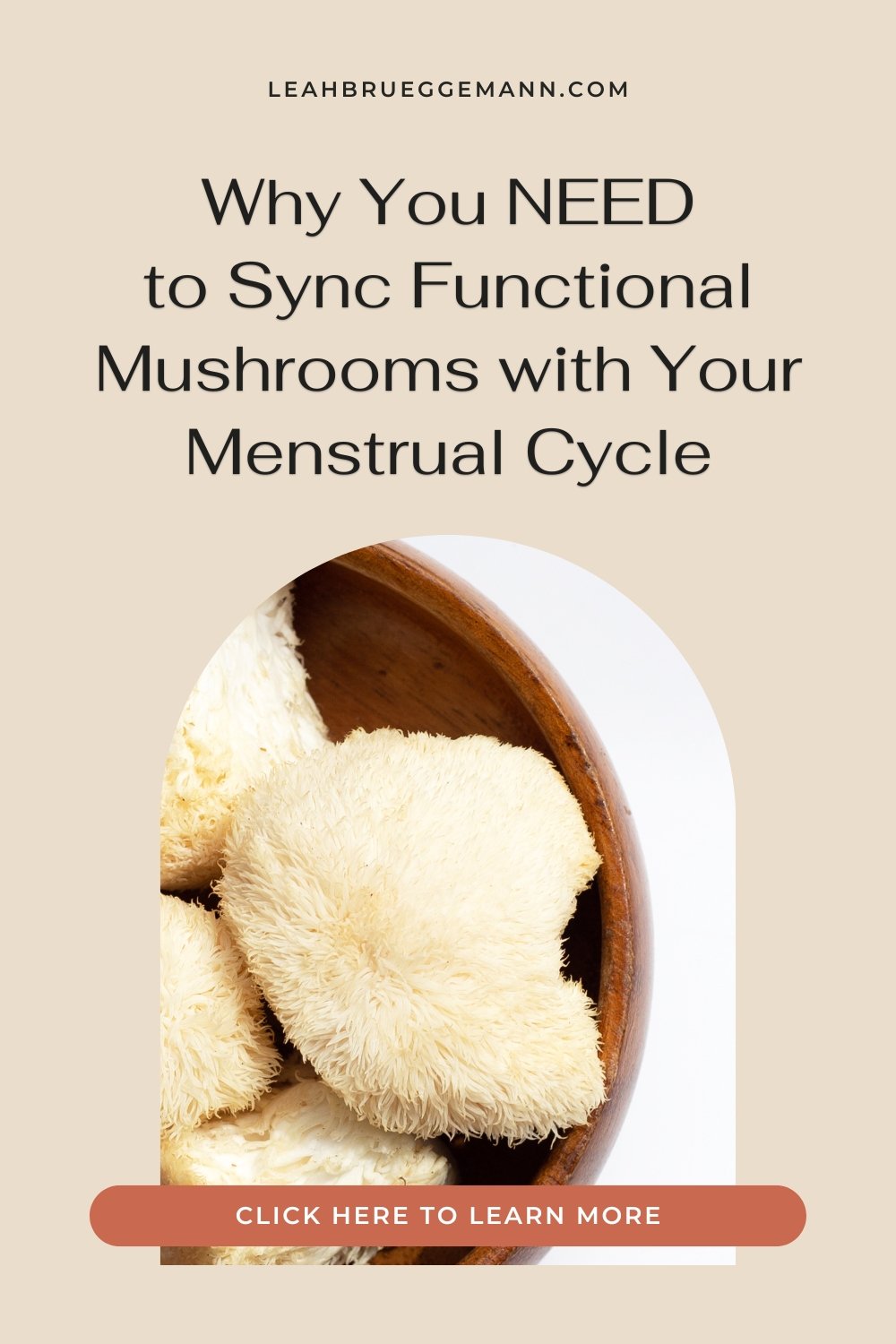The Mind-Body Connection for Gut Healing with Dr. Peter Kozlowski
When it comes to gut healing, you can take all the supplements and follow the perfect diet, but if you don't address your emotional healing, your gut will stay messed up. To learn more about gut healing and the mind-body connection, I sat down with Functional Medicine, M.D., Dr. Peter Kozlowski. He shared the science behind the mind-body connection - the secret no one is talking about when it comes to healing.
As a Functional Medicine M.D., Dr. Kozlowski uses a broad array of tools to find the source of the body's dysfunction. He takes the time to listen to his patients and plots their history on a timeline, considering what makes them unique and co-creating a truly individualized care plan with them.
Do you understand why I just HAD to interview him? Because this sounds amazing, right?! Currently, he works with patients online and in person via Chicago, Illinois and Bozeman, Montana-based offices. Dr. Kozlowski did his residency in family practice. But he started training in functional medicine as an intern. He trained in clinics with leaders in his field, including Dr. Mark Hyman, Dr. Deepak Chopra, and Dr. Susan Blum.
I really enjoyed this interview, bringing together the Western and the Eastern side of medicine, because he has experience in both sides of the field. And just hearing him share that experience and what made him switch over and really diving into why mental and emotional support is so important when it comes to healing was amazing. You can't just take all the supplements without also supporting the emotional side.
The Matrix of Health
There are five main areas that Dr. Kozlowski looks at in terms of functional medicine to determine the underlying cause of disease:
Food
Gut health
Hormone imbalances
Toxins
Mental, emotional, and spiritual health
And out of those, he described mental, emotional, and spiritual health as the most important to him in his practice. That's why he wrote a book called Unfunc Your Gut. And the big secret he reveals in the book is that the key to your gut health is your mental, emotional, and spiritual health, which he says has now become his passion. I just love that! It can be hard to find an M.D. who is passionate like this so we always love to hear that.
This is how Dr. Kozlowski described the matrix to me:
“At the core of functional medicine, we use this thing called the matrix which kind of looks at all your different areas of health, and in the middle of it is mental, emotional, spiritual. But we get so excited thinking about diet, thinking about SIBO, or candida or estrogen dominance or lead toxicity, that it's very easy to forget the most important piece.”
I think a lot of times people go to their doctor and they're like, “Hey, this is what's going on.” And they get frustrated when they’re just prescribed something instead of being helped to understand the underlying problem. That's really common with many of my clients because the doctors are like, “Well, here's birth control, I don't know what else to do.” And the women I work with generally don’t want to go on birth control. So I love that Dr. Kozlowski can see both sides from his functional and traditional medicine backgrounds to be able to truly help people in that way.
Dr. Kozlowski says that the reason that we start with the gut is because the gut is the gateway into the body. The gut is a tube that starts with the mouth and ends with the anus. The inside of your gut is actually considered outside of your body. So if you swallow something and poop it out, it has never, medically speaking, actually been inside your body. We’re most familiar with digestion and absorption when it comes to gut health. But Dr. Kozlowski views the most important job of the gut as protection. It decides what comes in and what stays out. It's a barrier that works like the skin. But while the skin is a bunch of different layers made up of a ton of cells, the gut is a single layer of cells.
And over the last couple of decades, our environment has become a lot more toxic, right? We've changed our food supply, we've changed what we put on our food, we’ve changed how many medications we take, the amount of mold and heavy metals and glyphosate and organophosphates and EMFs around us has changed. So there's this flood of things hitting us every day. And the best way for those toxins to get into our body is through the gut. And once they get through the gut and into the blood, now they're in the body, and they can go anywhere.
As Dr. Kozlowski says, “That's why I could take 100 patients with lead toxicity. And they all have different symptoms, because inflammation got into the body, and then it's free to circulate.”
This is why it's so important to not chase the symptoms because you’ll end up chasing your tail forever and ever.
The Gut Highway System
Dr. Kozlowski further described that the gut is lined with a nervous system called the enteric nervous system. In this gut nervous system, there are more neurons than there are in your brain. And it’s connected to your brain by the vagus nerve. The vagus nerve is your 10th cranial nerve which runs from your brain to your gut and heart and lungs. Dr. Kozlowski pictures it as a highway that's carrying signals in both directions. So the brain affects the gut and the gut affects the brain.
The vagus nerve runs on your autonomic nervous system, which means this nervous system is firing without you thinking about it. It’s divided into sympathetic and parasympathetic responses. Sympathetic, is fight or flight. Parasympathetic is rest and digest.
Dr. Kozlowski used a great analogy to describe it:
“I live in Montana. Let's say you're out hiking in the mountains, and you see a grizzly bear - the sympathetic nervous system is activated and that blood and energy go to your brain, and muscles. So you figure out how to survive. If you do survive, and you're sitting by the campfire, at the end of the night, and having a meal, you're now in parasympathetic. That energy is going to your gut to break down what you're eating.”
And it’s important to know that not all sympathetic is good and not all parasympathetic is good. We need both to work in balance. With the amount of stress we deal with regularly on a day-to-day basis nowadays, it means we are essentially living as if we're running from a bear all day, every day. We wake up and the first thing we do is check our phone, social media, breaking news, work emails, and so on. All of this stressful stimulation is telling our gut right from the beginning of the day, ‘Hey, we don't need you today, today's a survival day.’ So all day long we're reaffirming that signal so the gut gets confused because there's food coming in here. It needs to break this down but the mind is telling it, ‘No, now's not the right time.’ So when you're living in that fight or flight response, you don't digest your food, your gut gets leaky, and then your microbiome changes and all the gut bacteria get out of whack.
So if you're trying to take all the right supplements and eat all the right food but you're still running around like a chicken with its head cut off under stress, you may not even be absorbing your supplements. You may just be having extremely expensive poop.
So what do we do about it?
Dr. Kozlowski says, “I've recommended to every patient I've ever met to work with a therapist while they're working with me.”
He went on to describe someone he’d been treating for only a year. She said she’d been working with a therapist and really focusing on her mental health and has seen a huge change. Whereas another patient Dr. Kozlowski worked with for six years was offended by his suggestion that she should pair this work with therapy and she, even after six years still isn’t doing well.
Other things Dr. Kozlowski focuses on are gratitude, exercise, prayer and meditation, and socializing with other people who are focused on or at least open to mental, emotional, and spiritual wellness.
“I do a gratitude list every day with my wife, three things we’re grateful for. Exercise is a big one for me. If I don't exercise for a few days, my mental health starts to fall apart. Prayer and meditation is a big one. And just having a social network of people that are also open to admitting that they have mental, emotional, and spiritual issues. That's what works for me. But it's difficult because I might love my therapist, but they might be terrible for you. I like guided meditation, but somebody might like something different. Different types of exercise, some people have enough pain where they can’t exercise. So for me, I just try to help people create awareness around it. And when I see them shift from denial to acceptance, which is something I had to do in my own journey, I can see things change. And once you can accept that this is connected to my health, then you can start figuring out what's the right way to deal with it for you.”
Trauma with a Lowercase t
When working with my own clients, we talk about what’s going on in life, what things they might be struggling with mentally, and what trauma they are holding in their bodies. And so many of them are like, ‘Well, nobody's died and my family like nothing dramatic has happened.’ We dismiss anything that isn’t trauma with a capital T. But trauma with a lowercase t is still trauma. It's still there.
Dr. Kozlowski had a great description of this, “Trauma is anything less than nurturing.” Most people think of violence or war, things like that. But a classic story is a five-year-old coming home from school, wanting to show their parents their homework, but their parents are busy and not paying attention. That can create trauma, because it's like, I'm not good enough. And something so subdued that we might not really think about can completely shut down the gut.
Or maybe this happens and you’ve never thought about it again so you're going through life and you're fine. But then you’re in college and something happens, or something in your marriage or divorce or kids, triggers an old trauma, and eventually what started as something very subtle can flow over into an autoimmune disease or something else. So it’s easy to think, ‘No way, I don't have trauma.’ Or ‘I created my own trauma,’ but it doesn't matter. Your body processes all trauma as trauma no matter how invalid you might want to think it is.
And nobody talks about it. It doesn't make anybody any money. But it’s something free that everybody could start doing today. Just talking about it brings awareness to the idea in normal, day-to-day life. Talk about how you are managing your stress with the people around you. Not only does this help you process it, but it opens doors for connection and invites others to start processing their stressors as well.
Where does functional medicine come in?
Every practitioner practices functional medicine differently. And there are different ways to heal. Dr. Kozlowski says his way might not be best for one person, but might be great for another. It’s important to find a practitioner who works in the way that you want to heal.
Which is why he wrote his book, Unfunc Your Gut. Anytime he starts seeing a new patient, the first session is always educational. Dr. Kozlowski wrote this book to give people the information to get started on their health journey through functional medicine, even if he isn’t the right practitioner for them.
“There's a lot of bad information out there. It's really, there's just a lot of confusing information. And actually, chapter one of my book is basically why you should stay off the internet. I go through what happens when I Googled abdominal pain, and the hundred different diagnoses that I could convince myself of. Then you have one friend who's like a raw vegan, and you'll have another friend who's keto, and now you know somebody that's carnivore, and they're all swearing like this is the only way this is like, this is the answer everybody's been looking for. And then you try and you're like, ‘well, this isn't working for me, what's wrong with me?’ And then you search more. And then somebody's like, well, you have this or that. And it just destroys people. My piece of advice that I give people is to find a practitioner you trust. After you do that, every time you want to get on the Dr. Google, try meditating instead and see what happens.”
Functional medicine that incorporates the mind-body connection may be the missing piece if you feel like you’ve tried everything.
You can take all of the supplements, and you can follow the diet and you can spend thousands of dollars, but unless you deal with the things going on in your mind and actually acknowledge the fact that your mentality and emotions deserve healing as well, you might be stuck. Find a practitioner that truly aligns with you. But you know, maybe one that also pushes you a little bit because you have to get out of that comfort zone to start making progress.
For more hormone balancing tips and recipes, get the food cycling recipe ebook!
The recommendations presented in this blog are not a substitute for medical advice from a qualified doctor. Before making any changes to your diet and lifestyle, please consult with your health care provider.
Some of these links contain affiliate links.



